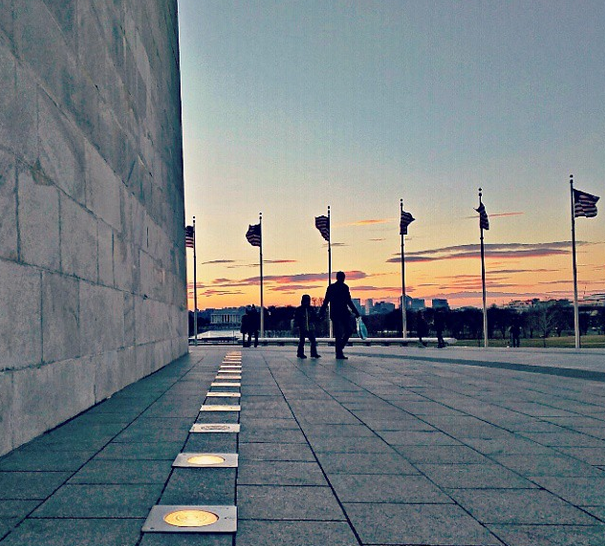What It’s Like To Be “Too Poor For Welfare”

Graduating from college was the happiest moment in my life, but little did I know that within four months of graduation, I would be jobless, broke, and turned down for government assistance twice because I was too poor.
Too poor for welfare.
I bet you didn’t realize that was a possibility. I knew I didn’t. But a recent report from the PEW Research Center documents the rising cost of being poor; yes, even poverty is becoming increasingly expensive within our country.
I was the first in my family to graduate from college. I had won several prestigious awards while in college, had collected countless speech and debate honors for my college, led my campus’ Judicial Board, and was honored to be selected among America’s next generation of public service leaders as a Harry S. Truman Scholar. I am a white, single gay male and recognize the privilege that has come with each of those markers. My future looked bright and promising and everyone had such high hopes for me.
But I come from a working class family. My family was typical of twenty-first century America — we had been middle class, but we fell when the economy collapsed, and then fought our way back up and continued to try to achieve the American dream. Through the combination of my parents’ grit and determination, the assistance of our friends, family, and church, and yes, at times, “entitlement programs,” we got by. I went to college to break out of this cycle, with hopes to provide myself a better life, with financial security untethered to the ups and downs of circumstance. I worked four part-time jobs while in college to help cover my costs, and I was able to live fairly comfortably with my paychecks and student loans. I traveled with classes, went out with my friends, and enjoyed my four years of relative isolation from the harsh reality of the economy. I was able to save up a meager sum of money, and took that to Washington D.C. in my quest, like many millennials, to help change the world.
We’ve been told that the job market is rough for young graduates, and that now more than ever, job security is a thing of the past. I had expected finding steady employment to be a slight struggle, but I had a great resume with experience that many thirty-somethings couldn’t claim, and so I was sure that I would be able to land a job, and was excited to begin this new phase of my life. Little did I know that it would take me four months — and over 200 job applications — before I would finally land a job in D.C.
Eking out those four jobless months was insanely difficult. I budgeted down to the last dollar and cut back every extraneous expense, which often resulted in my never leaving the apartment because I didn’t have the funds to take public transit from the suburbs into the city. I had already maxed out my credit card to help cover moving costs. I was borrowing money from a friend to pay for rent. Had it not been for the assistance of loving friends, I would have found myself without a roof over my head. I lost 15 pounds and chalked it up to a new workout routine. I reality, I’d been cutting back on food because I had to make my savings stretch.
Even though I lived extremely frugally, medical costs (I couldn’t rely on my parent’s health insurance because they don’t have insurance), food, transportation, and incidental interview costs quickly demolished what little I had been able to save over four years and soon I found myself with fewer than $200 to my name.
I had been taught from a young age that self-reliance was admirable, but that being able to admit defeat and asking for assistance was commendable. So I finally made the tough decision: I decided to apply for government assistance.
The application process for welfare is easy – at least on paper. Fill in a few pages of information, click ‘submit,’ and you’re on your way to becoming one of the 12.8 million Americans who receive government assistance.
I hit “submit” on my application and sat back. I’d never felt more disappointed in myself in my life. I had done everything that I could to pull myself up, and yet I wasn’t able to achieve basic survival, let alone stability. Within a few days, I received a letter from the District of Columbia with a benefits card and a 1-800 number to dial to check my balance. In that moment I felt hope — hope that I could make it and that this whole scenario would just be a brief blip in my otherwise-burgeoning professional career.
Well, I dialed the number and was told my balance was a whopping $0.00. The District of Columbia had spent more on postage and the cost of producing my empty card than I did on food that day.
People say that there are moments in life when the world seems to stop moving. Moments where you cannot process information. Moments where you’re too emotional for tears and all you can achieve are dry sobs. This was one of those moments. I went into the bathroom and turned on the faucet so that my roommates wouldn’t hear my breakdown.
The next morning I re-dialed the 1-800 number and was told that because I had been an intern in DC during the summer, I had no demonstrable wages to establish residency and therefore was not able to be covered under DC assistance programs. The operator told me to try and reapply through my home state’s assistance program, where I’d have better success. Hope — finally a silver lining at the edge of this horrible storm.
Another round of paperwork and several days’ worth of waiting led to an interview with a caseworker from Idaho. A caseworker! I thought I’d finally be able to tell my story and get the help I needed to lift myself up. After reviewing my W-2’s over the phone, the caseworker told me that I would be contacted within the next few days with a final decision.
Rejected. Despite paying taxes, volunteering hundreds of hours each year in my community, and putting my all into my education, I would not qualify for what many consider to be hand-outs. I was too poor to provide for myself and was too poor for the government to consider me eligible for aid.
While millions of Americans aren’t able to land regular jobs with livable wages, while all this was going on, I’d nabbed interviews with several organizations and eventually landed a job at People For the American Way, a progressive nonprofit that champions constitutional freedoms and equality. I started my first day of work with $4.27 in my savings account. I would slowly begin the process of digging myself out of the debt that I had found myself in. I’m proud to say that now, other than student loans, I am completely debt-free and have been able to grow a strong savings account.
Raised in a conservative Republican home and community, I’d long listened to negative rants against government assistance. I still involuntarily flinch every time I read or hear statements that characterize entitlement recipients as “welfare queens.” Political arguments aside, statements like this are wrong and damaging in every sense. We live in a world still reeling from the recession, a world in which financial security doesn’t really exist unless you are lucky enough to find yourself among the independently wealthy. All it takes is one health crisis, one layoff, or countless other incidents than can result in losing everything. Millions others rely on it every day to get by.
I was almost one of them.
Tyler Hatch is on Twitter and Instagram.
Feel like you’ll never save enough money to be a real person? So did Steph Georgopulos. Read about it in Some Things I Did for Money.



